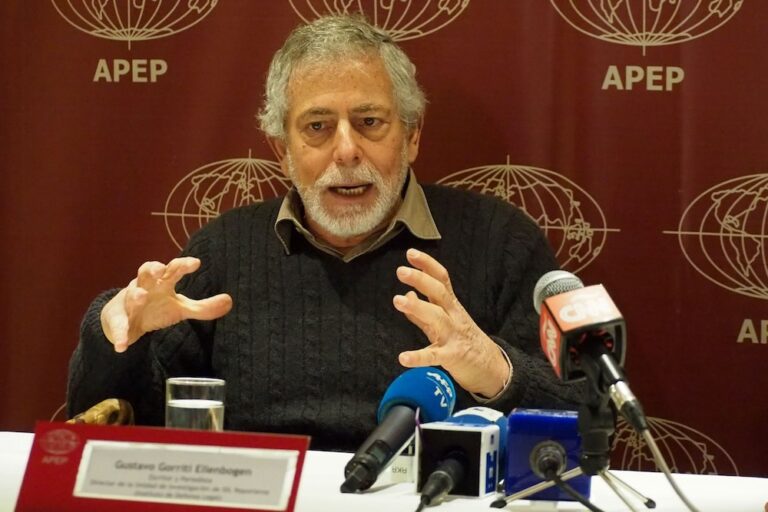During a recent press conference, the President of the Congressional Defence Commission, Gilberto Siura, stated that he did not agree with the idea of putting in place controls on the media. He was referring to comments made on 25 August 1996 by the Bishop of the department of Ayacucho, Luis Cipriani, who criticised reports in […]
During a recent press conference, the President of the
Congressional Defence Commission, Gilberto Siura, stated that he
did not agree with the idea of putting in place controls on the
media. He was referring to comments made on 25 August 1996 by the
Bishop of the department of Ayacucho, Luis Cipriani, who
criticised reports in the press directed against certain public
figures, and who called for measures to control the media (see
Background, below). Siura said the best measure was the
professional responsibility (“la responsabilidad profesional”) of
the journalist himself. Since the Constitution guarantees freedom
of the press, Siura declared that Congress would not issue any
legislation that would limit this freedom. However, Siura stated
that what Cipriani had said about the violence of “lies”
(“mentiras”) was relevant.
**New case, plus update to IFEX alert dated 27 August 1996**
Meanwhile, the President of Peru, Alberto Fujimori, questioned
the ethics of the independent media in Peru, including daily
newspapers such as “El Comercio”, “La Republica”, and “Gestion”.
He doubted that the media used its power to noble ends, saying
that “this power and this freedom should be based on ethical
principles; otherwise, it becomes reckless” (“este poder y esta
libertad deberian tener como marco los principios eticos, sino
cualquier libertad se convierte en libertinaje”). Fujimori
believes that this freedom has been abused by the media when they
denounce corruption that takes place in, for example, the Public
and Future Securities Company, which is linked to Fujimori’s
family circle, or when they investigate the fraudulent government
purchases of, for example, Chinese tractors or overpriced
armaments. Fujimori said that, in such instances, the media
become no more than mere “tools” (“utiles”) of certain
individuals, and their investigations of corruption are “leaks”
(“filtraciones”) that do not stand up to the slightest analysis.
Fujimori also spoke of a “destabilisation plot” (“complot
desestabilizador”) by the independent media.
Fujimori made his comments in regard to reports in the media that
dealt with presidential advisor and principal advisor to the
National Intelligence Service, Vladimiro Montesinos. In an
article published in the 2 August edition of “El Comercio”,
Congressman Ernesto Gamarra claimed that there was a “Peruvian-
Mexican drug trafficking ring” (“multinacional de narcotrafico
peruano-mexicano”) that operated under the auspices of Montesinos
and Santiago Fujimori, both of whom work closely with President
Fujimori. Moreover, on 16 August, the self-confessed drug
trafficker Demetrio Chavez Penaherrera — in whose police
affidavit were included charges of having ordered the murder of
American journalist Todd Smith and “La Republica” correspondent
in Huallaga, Adolfo Isuiza — declared that he was able to build
a runway in Campanilla in the vicinity of the Punta Arenas Naval
Base in Huallaga because he had paid US$ 50,000 to Montesinos.
Background Information
On 25 August, Cipriani called for “mechanisms” to be put in place
to control — “without hindering freedom of expression” — the
media’s reporting. “News is a product,” he said, and that it
should be submitted through quality controls just like
advertising. He said some news reports engender a kind of
“violence” in the country, saying certain media promote this
violence of “lies,” “suspicion,” and “libel.” Said Cipriani,
“This violence is much graver since it attacks the dignity and
honour of individuals, simply because it is backed by the power
of the media” (see IFEX alert).


